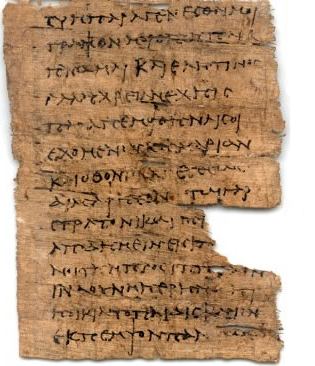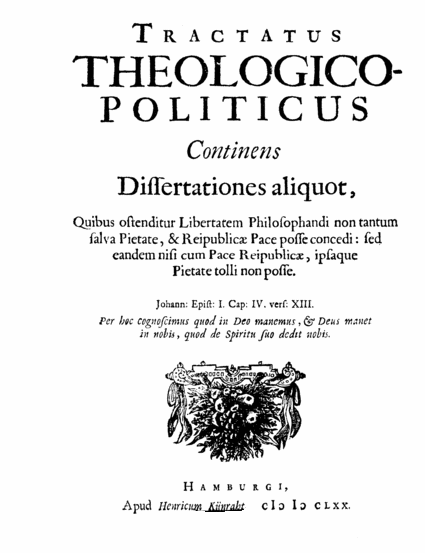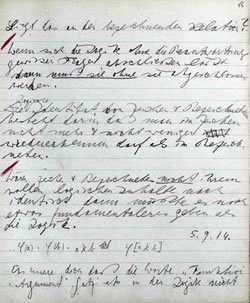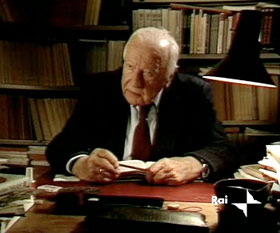The Philosophical Content
While Philosource is designed to be a continually expanding resource, it begins with a critical mass of material. The content of the Discovery Federation may be outlined as follows:
1. Ancient Greek Philosophy

Three monumental bodies of work form the core of the ancient material in Philosource:
- a complete electronic edition of the fragments and testimonies of the Presocratic philosophers, based on Die Fragmente der Vorsokratiker edited by Diels and Kranz, in ancient Greek with translations into German and Italian;
- a complete electronic edition of all testimonies related to Socrates and the so-called Minor Socratics, based on Giannantoni's Socratis et Socraticorum Reliquiae and including, in addition, the text of Aristophanes' Clouds and Xenophon's Socratic writings, all in ancient Greek;
- the complete text of Diogenes Laertius' Lives of the Philosophers in ancient Greek with accompanying Italian translation.
This material has been edited and published by the Istituto per il Lessico intellettuale europeo e Storia delle idee (ILIESI), CNR, Rome within the Daphnet Source website.
2. Early Modern Philosophy and Science

Daphnet Source also publishes a selection of modern philosophical and scientific texts, including 52 works by 7 major authors from the 16th to the 18th century, including:
- G. Bruno, De l’infinito, universo et mondi and others
- R. Descartes, Meditationes de prima philosophia and others
- B. Spinoza, Tractatus politicus and others
- G. W. Leibniz, De primae philosophiae principia (Monadologia) and others
- G. B. Vico, De uno universi iuris principio et fine uno and others
- A. G. Baumgarten, Meditationes philosophicae de nonnullis ad poema pertinentibus
- I. Kant, De mundi sensibilis atque intelligibilis forma et principiis dissertatio and others
3. 19th and 20th Century Philosophy
Nietzsche Source

Nietzsche Source, hosted by the Institut des Textes et Manuscrits Modernes, CNRS-ENS, Paris and at the Maison Française d'Oxford (CNRS-MAEE), Oxford, working in collaboration with specialists at the Ludwig-Maximilians-University, Munich, publishes essential and reliable scholarly editions of Nietzsche’s works and Nachlass:
- The Digitale Faksimile Gesamtausgabe (Digital Facsimile Edition) publishes high quality reproductions of Nietzsche’s published works, proofs, drafts, preparatory manuscripts based on the original manuscripts and prints held at the Foundation of Weimar Classics. This is the largest facsimile edition ever realized within the context of Nietzsche studies. The majority of this manuscript material has never been published in facsimile and none of it has ever been published online.
- The Digitale Kritische Gesamtausgabe Werke und Briefe (Digital critical edition of the complete works and letters) publishes the electronic version, encoded in TEI-P5, of the reference critical edition of Nietzsche’s works, posthumous fragments and letters previously published in print by Giorgio Colli and Mazzino Montinari.
Wittgenstein Source

Through Wittgenstein Source, the Wittgenstein Archives at the University of Bergen at AKSIS/Unifob, Bergen, provides access to 5,000 pages of the Wittgenstein Nachlass in both facsimile and transcribed editions. These include typescripts and manuscripts, notebooks and fair copies, single cuttings and coherent works, including material from the Big Typescript complex (1929-1934), the Brown Book complex (1934-1936), the “Lecture on Ethics,” and “Notes on Logic”. Furthermore, Wittgenstein Source provides a space for publishing peer-reviewed scholarly articles, lectures, bibliographies. Wittgenstein Source organizes the content into the following modules:
- Bergen Facsimile Edition provides direct access to approximately 5,000 facsimiles of Wittgenstein’s Nachlass. While these images have been published before in the Bergen Electronic Edition (Oxford University Press) on CD, none has been published before online, and none has been published under an Open Access licence.
- The Bergen Text Edition provides, in HTML, direct access to the Diplomatic and Normalized editions of each single remark contained in the 5,000 pages of Wittgenstein’s Nachlass. These editions are prepared on the fly by applying a stylesheet (provided by WAB), on top of the XML transcription itself.
4. Contemporary Philosophers

The Sophiavision website, hosted by the RAI Radiotelevisione Italiana in Rome, provides 300 video lectures and interviews, completed by abstracts and transcriptions, featuring leading thinkers addressing fundamental philosophical questions. Speakers include H. G. Gadamer, Jacques Derrida, Etienne Balibar, Giovanni Vattimo, and many others. The main source from which contributions were selected was the Multimedia Encyclopaedia of Philosophical Science (EMSF), a collection of 1500 interview-lesson to scholars from 34 countries. In addition to a large proportion of contributions from EMSF and from some TV programs related to the Encyclopaedia (Aforismi, Knowledge Universe, etc.), Sophiavision includes many valuable contributions never broadcast before as well as completely new interviews with reference to specific texts, authors and topics provided by other partners of the Discovery project.
